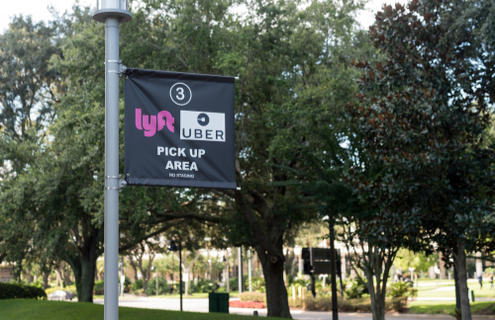IHS Markit: LYFT and UBER mark most anticipated IPOs
10 June 2019 New York
 Image: Shutterstock
Image: Shutterstock
The most anticipated initial public offerings (IPO) of the year by longs and shorts were Uber and Lyft, according to Sam Pierson, securities finance director, IHS Markit.
Pierson explained that on the first settlement day following Lyft’s IPO it was briefly the most expensive to borrow US equity with any substantial loan balance, with an annualised fee of 100 percent.
The Lyft borrow fees declines sharply over the first few weeks of trading before slowly trending back up to 30 percent on the eve of the Uber IPO, currently closer to 20 percent.
The highly anticipated Uber IPO had a float large enough that there was never any material borrow cost, Pierson revealed.
According to Pierson, the ease of borrowing Uber shares may have contributed to the rapid build-up of short positions—two weeks after the IPO the value of borrowed shares exceeded $1 billion, and currently stands at $1.7 billion.
Meanwhile, Beyond Meat is the most expensive to borrow of the recent IPOs, and Pierson noted that over the last two weeks of May and early June there has been very little borrow availability which has driven the increase in fees.
Pierson said that the borrows reported for 15 May almost exactly matched the short interest reported by Nasdaq, suggesting very little borrow availability away from the traditional securities lending supply chain.
Discussing Tilray, Pierson highlighted that this is the poster child for extremely hard to borrow, low float IPOs, and the loft valuation relative to sales for profitless Cannabis producer made it a likely target for short sellers.
Short sellers generally anticipate the lockup expiry will coincide with a decline in the share price as more shares are introduced to the float, which may come in the form of previously locked up shareholders looking to sell, Pierson said.
He explained that the lending fee, or borrow cost, should be considered when evaluating a long or short position in the shares of a firm which recently went public.
He commented: “The relatively low equity floats often make the shares expensive to borrow which adds to the pressure on short sellers to time the positions well.”
“The lockup expiries sometimes serve as the catalyst for a sell-off, however short sellers often face increased borrow costs in the run-up to the event which can have a significant impact on position profit and loss.”
Pierson added: “The lofty valuations, public excitement and share price volatility of recent IPOs attract many investor types on the long and short side, all would do well to optimise their securities finance operations.”
Pierson explained that on the first settlement day following Lyft’s IPO it was briefly the most expensive to borrow US equity with any substantial loan balance, with an annualised fee of 100 percent.
The Lyft borrow fees declines sharply over the first few weeks of trading before slowly trending back up to 30 percent on the eve of the Uber IPO, currently closer to 20 percent.
The highly anticipated Uber IPO had a float large enough that there was never any material borrow cost, Pierson revealed.
According to Pierson, the ease of borrowing Uber shares may have contributed to the rapid build-up of short positions—two weeks after the IPO the value of borrowed shares exceeded $1 billion, and currently stands at $1.7 billion.
Meanwhile, Beyond Meat is the most expensive to borrow of the recent IPOs, and Pierson noted that over the last two weeks of May and early June there has been very little borrow availability which has driven the increase in fees.
Pierson said that the borrows reported for 15 May almost exactly matched the short interest reported by Nasdaq, suggesting very little borrow availability away from the traditional securities lending supply chain.
Discussing Tilray, Pierson highlighted that this is the poster child for extremely hard to borrow, low float IPOs, and the loft valuation relative to sales for profitless Cannabis producer made it a likely target for short sellers.
Short sellers generally anticipate the lockup expiry will coincide with a decline in the share price as more shares are introduced to the float, which may come in the form of previously locked up shareholders looking to sell, Pierson said.
He explained that the lending fee, or borrow cost, should be considered when evaluating a long or short position in the shares of a firm which recently went public.
He commented: “The relatively low equity floats often make the shares expensive to borrow which adds to the pressure on short sellers to time the positions well.”
“The lockup expiries sometimes serve as the catalyst for a sell-off, however short sellers often face increased borrow costs in the run-up to the event which can have a significant impact on position profit and loss.”
Pierson added: “The lofty valuations, public excitement and share price volatility of recent IPOs attract many investor types on the long and short side, all would do well to optimise their securities finance operations.”
NO FEE, NO RISK
100% ON RETURNS If you invest in only one securities finance news source this year, make sure it is your free subscription to Securities Finance Times
100% ON RETURNS If you invest in only one securities finance news source this year, make sure it is your free subscription to Securities Finance Times



